Introduction
In the realm of traditional Chinese cuisine, few dishes capture the essence of rustic elegance quite like 醇香酱驴蹄 (Fragrant Soy Sauce-Marinated Donkey Hooves). This dish, rooted in the culinary traditions of northern China, particularly in regions like Shandong and Hebei, is celebrated for its rich flavors, tender texture, and the meticulous craftsmanship required to prepare it. While donkey meat is less common in global cuisine, its unique taste and nutritional benefits have earned it a cherished place in Chinese gastronomy. This article delves into the history, preparation, and cultural significance of this extraordinary dish, offering a step-by-step guide to recreating it in your own kitchen.
A Historical Tapestry
The consumption of donkey meat dates back centuries, with historical records suggesting its presence in Chinese diets as early as the Ming Dynasty (1368–1644). Donkeys, prized for their resilience and utility in agriculture, were occasionally raised for meat in regions with harsh climates, where other livestock struggled to thrive. Over time, chefs and home cooks began experimenting with donkey meat, discovering that its lean, dense flesh absorbed flavors exceptionally well when slow-cooked.
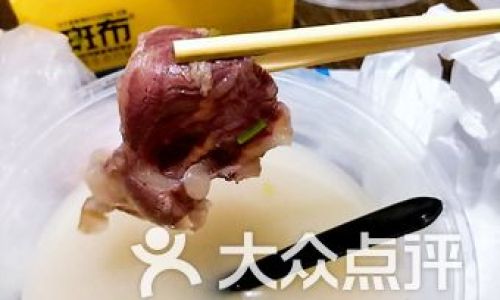
Donkey hooves, in particular, were considered a delicacy due to their gelatinous texture, which becomes luxuriously tender after hours of simmering. The dish 醇香酱驴蹄 emerged as a symbol of culinary ingenuity, transforming a humble ingredient into a feast for the senses. Today, it remains a staple in specialty restaurants and family gatherings, especially during festivals and celebrations.
The Art of Ingredient Selection
Creating the perfect Fragrant Soy Sauce-Marinated Donkey Hooves begins with sourcing the finest ingredients. The star of the dish is, of course, the donkey hooves. Opt for fresh, high-quality hooves from reputable suppliers, as freshness directly impacts the final texture and flavor. If unavailable, frozen hooves can be used, but they require thorough thawing and cleaning.
Key Ingredients:
- 4 donkey hooves (approximately 2 kg total)
- 500 ml premium soy sauce (preferably aged dark soy sauce for depth)
- 200 ml Shaoxing wine (or dry sherry as a substitute)
- 100 g rock sugar
- 15 g Sichuan peppercorns
- 8 star anise pods
- 4 cinnamon sticks
- 10 cloves garlic, peeled and lightly crushed
- 50 g fresh ginger, sliced into thick rounds
- 3 scallions, white parts only, cut into 5 cm segments
- 2 tablespoons fermented black beans (rinsed and mashed)
- 1 tablespoon fermented tofu (optional, for added umami)
- 10 cups water (or enough to submerge the hooves)
- 2 tablespoons vegetable oil
- Salt to taste
Preparation: The Alchemy of Patience
The preparation of 醇香酱驴蹄 is a labor of love, demanding time, precision, and an understanding of how ingredients meld under low heat. Here’s a breakdown of the process:
Cleaning and Parboiling:
Donkey hooves require meticulous cleaning to remove impurities. Begin by scrubbing the hooves under cold running water, using a stiff brush to eliminate dirt and debris. Next, parboil them in a large pot of boiling water for 15 minutes. This step not only sanitizes the hooves but also helps loosen the tough outer layer, making it easier to trim excess hair and calluses. After parboiling, drain the hooves and rinse them under cold water.
Marinating:
In a large bowl, combine the soy sauce, Shaoxing wine, rock sugar, Sichuan peppercorns, star anise, cinnamon, garlic, ginger, scallions, fermented black beans, and fermented tofu (if using). Stir until the sugar dissolves. Add the cleaned hooves to the marinade, ensuring they are fully submerged. Cover the bowl and refrigerate for at least 12 hours, or ideally 24 hours, allowing the flavors to penetrate the meat.
Simmering:
Heat the vegetable oil in a heavy-bottomed stockpot over medium heat. Add the marinated hooves (reserving the marinade) and sear them until lightly browned on all sides. This step caramelizes the exterior, locking in juices and enhancing the final flavor. Pour in the reserved marinade and add enough water to cover the hooves completely. Bring the mixture to a boil, then reduce the heat to a gentle simmer. Cover the pot and let it cook for 4–5 hours, or until the meat is fork-tender and the collagen has melted into a rich, viscous sauce.
Finishing Touches:
Once the hooves are tender, remove them from the pot and set them aside. Strain the cooking liquid through a fine-mesh sieve to remove solids, then return it to the pot. Simmer the liquid over medium heat until it reduces by half, concentrating the flavors into a glossy, aromatic sauce. Adjust the seasoning with salt if needed.
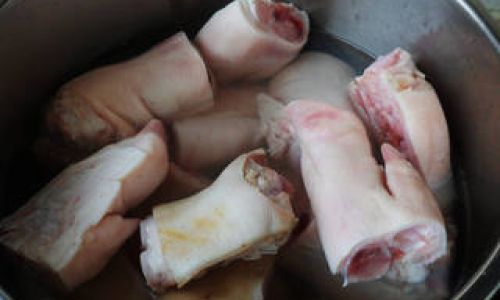
Serving:
Traditionally, Fragrant Soy Sauce-Marinated Donkey Hooves are served whole, allowing diners to appreciate the visual spectacle of the dish. However, they can also be chopped into bite-sized pieces for easier consumption. Drizzle the reduced sauce over the hooves and garnish with thinly sliced scallions and toasted sesame seeds. Pair with steamed jasmine rice or freshly made flatbread to soak up the savory sauce.
The Science of Texture and Flavor
What sets this dish apart is its harmonious balance of textures and flavors. The long simmering process breaks down the tough collagen in the hooves, transforming it into gelatin, which imparts a luxurious mouthfeel. The soy sauce-based marinade, infused with aromatic spices and fermented ingredients, creates a complex flavor profile that is simultaneously salty, sweet, spicy, and umami-rich.
The use of rock sugar, rather than granulated sugar, adds a subtle caramel note without overwhelming the dish. Sichuan peppercorns introduce a tingling sensation that elevates the dish without making it overly spicy, while star anise and cinnamon contribute warm, earthy undertones.
Cultural Significance and Modern Adaptations
In China, 醇香酱驴蹄 is often served during winter festivals or family reunions, symbolizing prosperity and resilience—traits embodied by the donkey itself. The dish’s labor-intensive preparation also reflects the value placed on communal effort and patience in Chinese culture.
Modern chefs have begun experimenting with this classic recipe, incorporating contemporary techniques like sous-vide cooking or adding unconventional ingredients such as dried fruits or chocolate to deepen the flavor profile. However, purists argue that traditional methods yield the most authentic results, preserving the dish’s cultural integrity.
Health and Nutritional Benefits
Donkey meat is renowned for its nutritional value. Low in fat and cholesterol yet rich in protein, iron, and omega-3 fatty acids, it is considered a healthier alternative to red meats like beef or pork. The gelatin from the hooves is also believed to promote joint health and skin elasticity, making this dish not just a treat for the palate but also a boon for overall well-being.
Conclusion
Fragrant Soy Sauce-Marinated Donkey Hooves is more than a dish—it’s a testament to the ingenuity of Chinese culinary heritage. Its preparation, though time-consuming, is a meditative process that rewards the cook with a symphony of flavors and textures. Whether enjoyed in a bustling Beijing restaurant or recreated in a home kitchen, this dish invites diners to savor the richness of tradition and the artistry of simplicity. As you embark on your culinary journey with 醇香酱驴蹄, remember that patience is the secret ingredient, transforming humble beginnings into a feast fit for emperors.
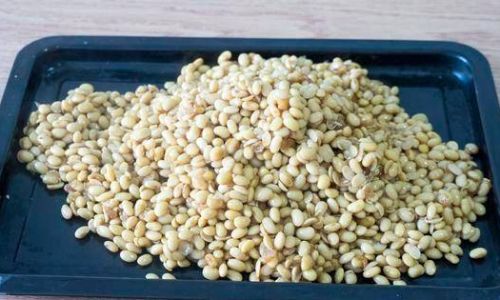
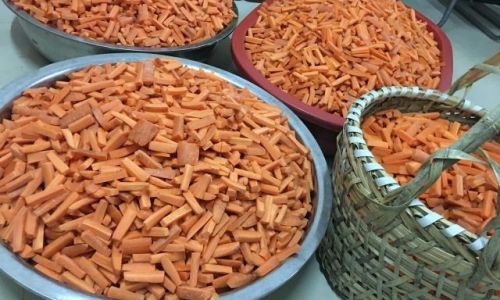
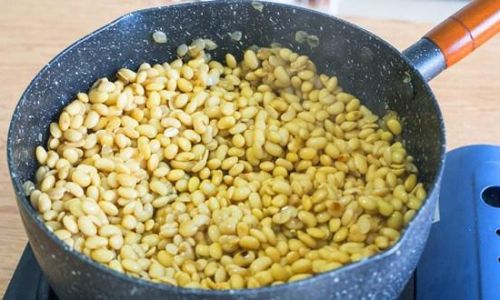
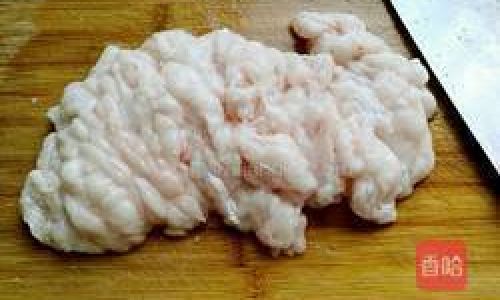
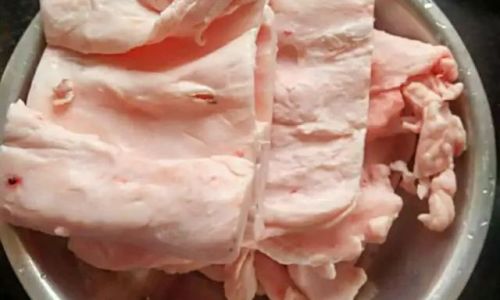
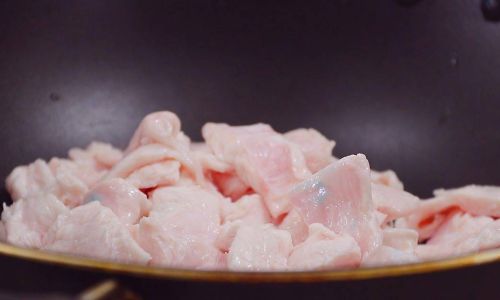
0 comments